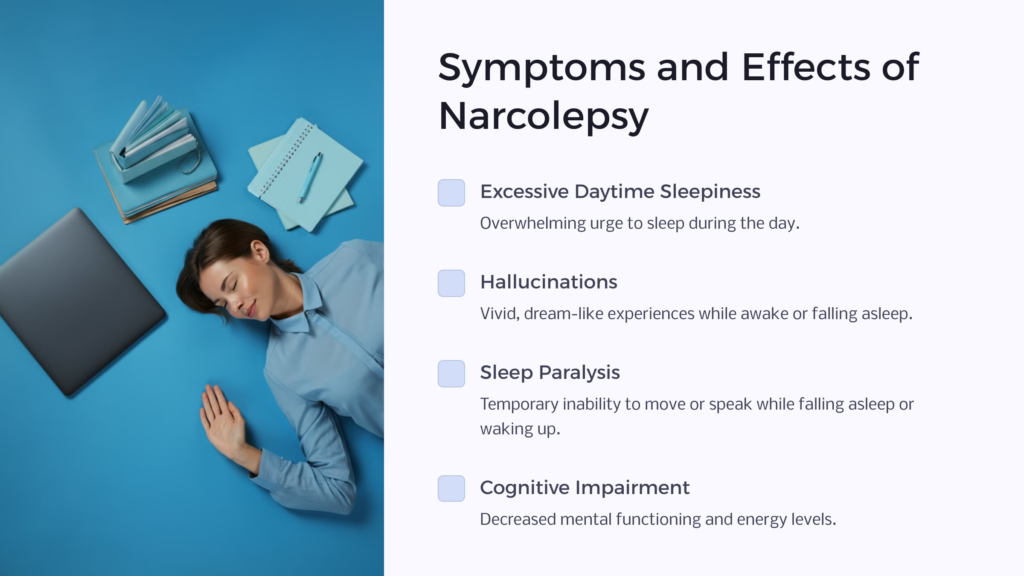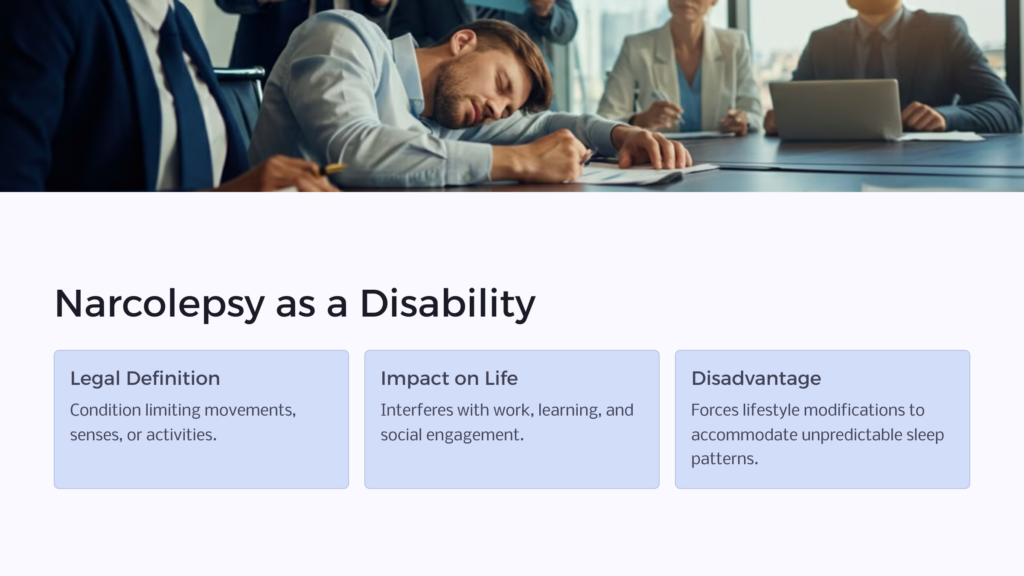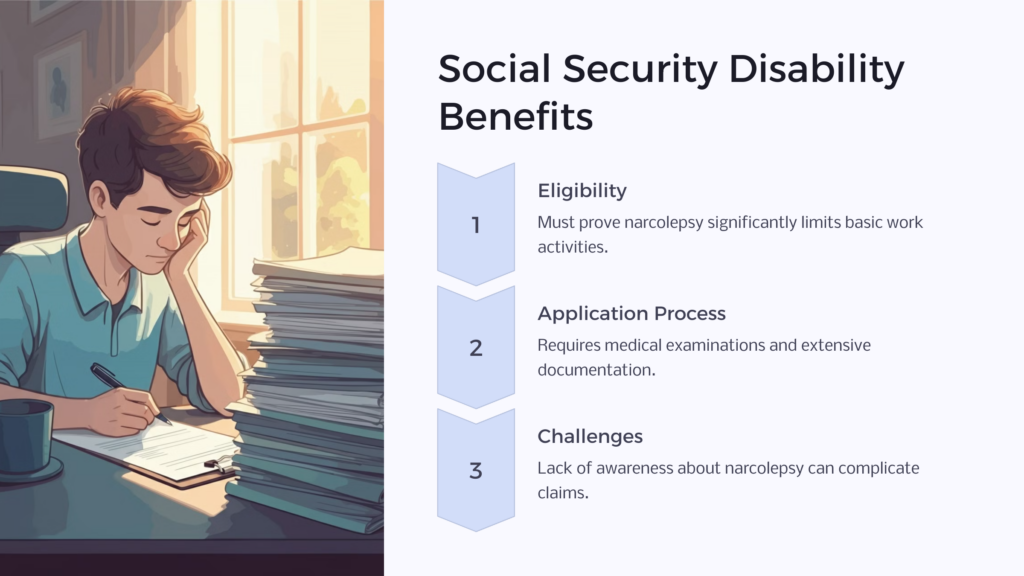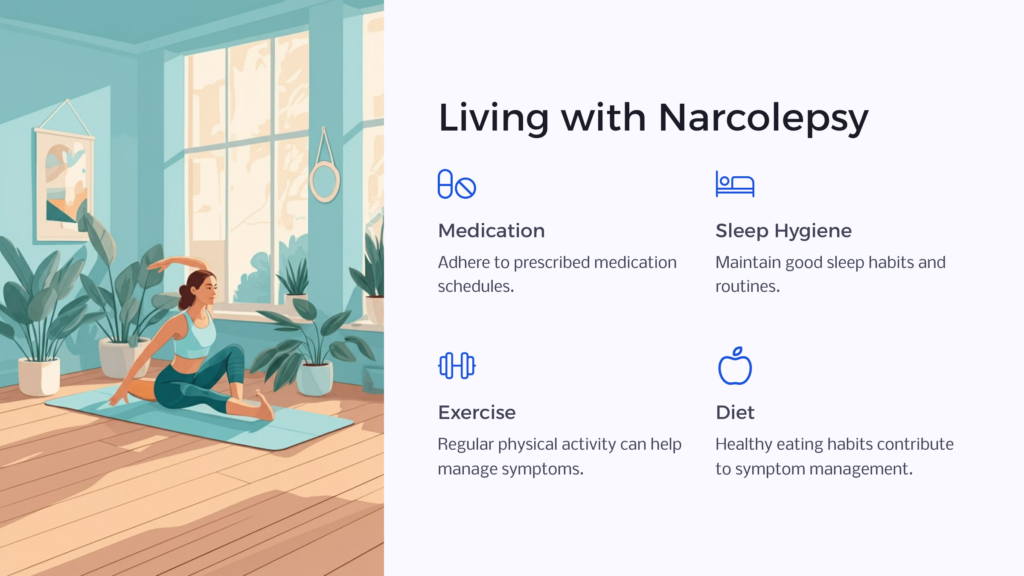Narcolepsy is a neurological disorder that affects the body’s sleep-wake cycle. It is typically characterized by excessive daytime sleepiness and involuntary sleep episodes. It’s estimated that 1 in 2,000 people are affected by this chronic, lifelong condition.

The symptoms and effects of narcolepsy can be quite debilitating. The person affected may experience hallucinations, sleep paralysis, decreases in mental functioning and energy, and wakefulness disruptions. The severity and range of symptoms can vary widely from person to person, but they all substantially impact day-to-day life.
Explaining Narcolepsy
The exact cause of narcolepsy is unknown, but it’s generally understood to be a result of a combination of genetic, environmental, and autoimmune factors. Individuals can be diagnosed with one narcolepsy type out of two main ones. Type 1 narcolepsy experiences cataplexy and Type 2 narcolepsy does not experience cataplexy. Cataplexy is a sudden and uncontrollable muscle weakness or paralysis that occurs while the individual is awake.
The demanding nature of narcolepsy often leads to difficulties in maintaining a regular daily routine, affecting personal relationships, professional life, and mental health. Common misconceptions about narcolepsy include the belief that people can control their symptoms, or that the disorder is just a result of being “lazy” or “overly tired.”
Narcolepsy in the Context of Disability

A disability, from a legal and social perspective, is generally defined as any physical or mental condition that limits a person’s movements, senses, or activities. Disabilities can create barriers that prevent those impacted from fully participating in society on an equal basis with others.
The substantial impact of narcolepsy on everyday activities makes a strong argument for its consideration as a disability. It dramatically interferes with an individual’s abilities to work, learn, and engage socially. It forces individuals to modify their way of life to accommodate the uncertainties tied with their sleep pattern, thus putting them at a disadvantage compared to others.
Legal Aspects
The Americans with Disabilities Act (ADA) is aimed at preventing discrimination against individuals with disabilities. Under the ADA, narcolepsy qualifies as a disability if it substantially limits one or more major life activities such as walking, standing, learning, reading, concentrating, or working.
There have been notable legal battles involving narcolepsy as a disability. For instance, a FedEx employee with narcolepsy successfully sued her employer for discrimination in 2003, creating a significant precedent for the acceptance of narcolepsy as a disability.
People with narcolepsy have a range of job protections and rights under the law. They have the right to reasonable adjustments or accommodations in the workplace to ensure their medical condition does not disadvantage them compared to their colleagues.
Narcolepsy and Social Security Disability Benefits

The Social Security Administration provides benefits to those who have a disability through the Social Security Disability Insurance (SSDI) program which also includes work related requirements to qualify and the Supplemental Security Income (SSI) program which has no work-related requirements. In order to qualify for social security disability benefits due to narcolepsy, an individual must show that their condition significantly limits their ability to do basic work activities. This includes tasks like lifting, standing, walking, remembering, and carrying out instructions.
Applying for these benefits involves an intricate process, and there are strict requirements to adhere to. To file a social security disability claim, you may need to undergo medical examinations and providing extensive documentation including detailed medical records which show the extent of impairment caused by narcolepsy.
One of the challenges faced when applying for disability benefits is the lack of awareness and understanding of narcolepsy. It’s important to navigate these challenges with patience, proper medical evidence, and possibly with legal help as well.
Living With Narcolepsy

Living with narcolepsy is a day-to-day challenge. Personal experiences vary, but many people report near constant excessive sleepiness, disruptions to their nighttime sleep, difficulty concentrating, decreased productivity, and negative impacts on their mental health.
However, there are ways to manage narcolepsy. Adherence to medication schedules, maintenance of good sleep hygiene, regular exercise, and healthy dietary habits can all contribute to managing the condition.
A wealth of resources are available for people with narcolepsy. There are many disability resources including support groups, both online and offline, which provide a platform for people with narcolepsy to connect with others in a similar situation, share experiences, and offer advice. Individuals may find comfort in sticking to the narcolepsy network or may find support from those diagnosed with another sleep disorder as well, such as idiopathic hypersomnia or sleep apnea which have many symptoms that overlap with narcolepsy symptoms.
Conclusion
In conclusion, the adverse effects of narcolepsy on an individual’s normal functioning significantly suggest that it should be considered a disability. Sufferers face impairments not just in the wakefulness aspect of their life but also struggle with social relations, cognitive abilities, and carry a constant risk of harm due to sleep attacks.
The legal and social perspectives toward narcolepsy are gradually changing, due in large part to increased advocacy and awareness. However, more needs to be done to provide proper support for people with narcolepsy and to eradicate the misconceptions surrounding the disorder.
Here’s hoping for continued conversations and increased awareness about narcolepsy. Anyone can be affected by this disorder, and with understanding and empathy, we can help make the daily lives of those suffering from it a bit easier to navigate.
 Benefits.com Advisors
Benefits.com Advisors
With expertise spanning local, state, and federal benefit programs, our team is dedicated to guiding individuals towards the perfect program tailored to their unique circumstances.
Rise to the top with Peak Benefits!
Join our Peak Benefits Newsletter for the latest news, resources, and offers on all things government benefits.




















